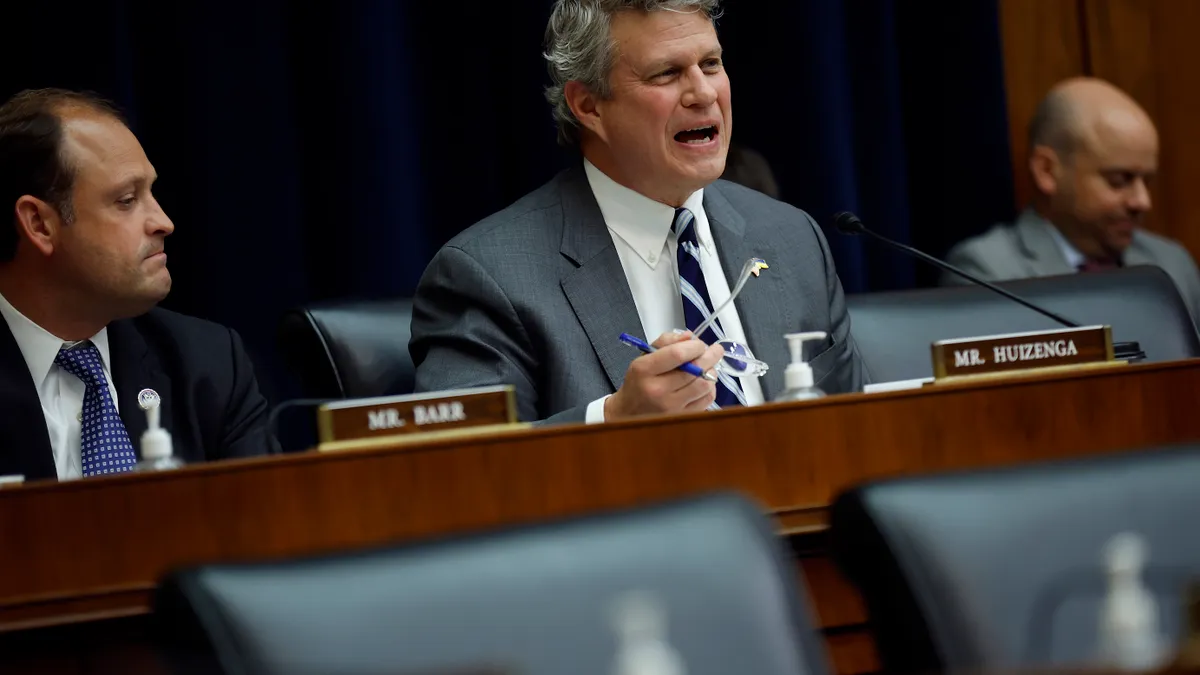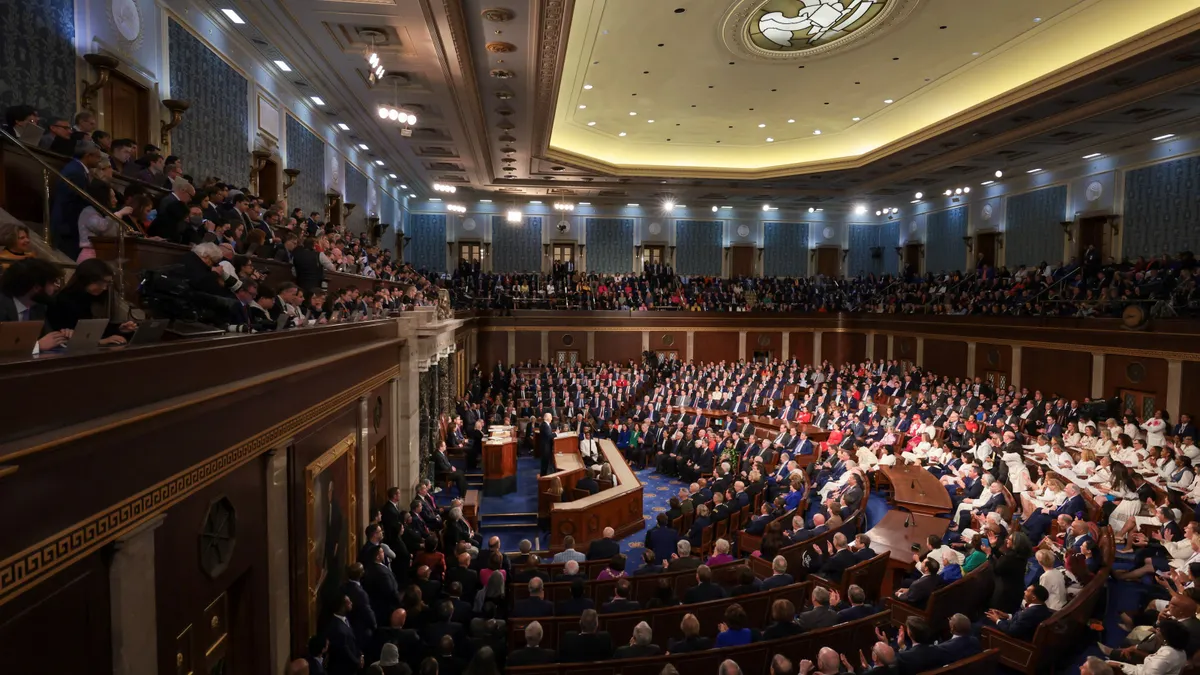With the Consumer Financial Protection Bureau investigating the peer-to-peer payment tool Zelle, its bank owners are on the defensive.
However, Zelle’s owners might find a friendly reception in the federal courts if they follow through on threats to litigate, according to lawyers familiar with the industry. Zelle is owned by seven banks through the parent company Early Warning Services.
JPMorgan, the biggest U.S. bank and an EWS owner, has said it would consider suing the CFPB over the investigation of the payments tool, if the agency issues an enforcement action against the bank over transfers through Zelle. Other banks, including Capital One and Bank of America, share ownership of Zelle.
Business-friendly rulings have made headlines in recent years, including the decision in Loper Bright Enterprises in June that undercut the Chevron doctrine. That was one of several rulings in the Supreme Court’s past term that limited the power of federal regulators.
Attorneys following the CFPB’s Zelle probe say the seven banks that own the payment platform may be able to find a judge sympathetic to their cause.
JPMorgan Chase, revealed that Zelle is under CFPB scrutiny in a June 30 public filing and threatened legal action, although the filing included few details.
The agency is looking into “the transfers of funds through the Zelle Network,” the filing said. The filing does not elaborate, but regulators and lawmakers have long criticized Zelle over scammers using the service. Victims have testified before Congress about losing their life savings to scammers who convincingly impersonated legitimate business executives and government investigators.
JPMorgan didn’t immediately respond to requests for additional comment, but in the June 30 filing, the bank said it was considering its options, “including litigation.”
Any decision not to the banks’ liking will almost certainly be appealed to the U.S. Fifth Circuit Court of Appeals, which is stacked with some of the nation’s most conservative judges and regularly sides with businesses over regulators, said William Birdthistle, a law professor at the University of Chicago and former director of the Securities and Exchange Commission’s investment management division.
“If you feel like you're facing a damaging or difficult investigation, you can credibly threaten to have it challenged in the Fifth Circuit,” he said. That appellate court covers Texas, Louisiana and Mississippi, and any business with a presence in one of those states can appeal a regulator’s decision there, Birdthistle said.
The Fifth Circuit previously ruled the CFPB’s funding mechanism unconstitutional. While that Fifth Circuit CFPB decision was overruled, the high court has upheld others.
A legal dispute over the CFPB’s investigative action could take some unexpected turns because its regulatory power has not been fully tested in court, Birdthistle stressed.
“The CFPB is actually a relatively strange animal, it’s the youngest of the dozen or so federal financial regulators and I don't think we've seen the full breadth of its wingspan,” he said
John Diamond, director of the Center for Public Finance at Rice University's Baker Institute, also predicts a legal fight over the Zelle probe.
“They view themselves as complying with the law as it is currently written,” he said of Early Warning Services, citing public filings and the company’s past statements.
A representative of Early Warning Services did not immediately respond to a request for comment on the CFPB investigation.
Diamond is skeptical that any changes mandated by Congress or the CFPB will solve the problem of scams.
Consumers can send money over the Zelle network free of charge, and requiring the network to reimburse customers or spend more on fraud detection could force the Early Warning Services to start charging Zelle users, ending a free service away from consumers who depend on it, he said.
“I could see there being a fee on these person-to-person transactions, as opposed to the current system, where the transactions are essentially free,” Diamond said.
Educating consumers on scams before they send any money is a more effective solution that doesn’t threaten Zelle’s fee-free service, he said.
Zelle also faces congressional scrutiny.
In hearings in recent months, lawmakers castigated Zelle for allowing fraudsters and scammers to bilk money from unsuspecting consumers. Lawmakers in the House of Representatives and the Senate have introduced bills that would compel services like Zelle to better combat fraud and scams and reimburse scam victims.
Consumer advocates have also urged regulators and lawmakers to do more to combat scams and fraud on the platform. Those efforts will become especially important as payment networks become more widely used, said Adam Rust, director of financial services for the Consumer Federation of America.
“These payment systems are really in their infancy,” he said. “I strongly expect these to (eventually) be used at the point of sale.”
For its part, Early Warning Services has said that more than 99% percent of the transactions on the Zelle network are free of fraud and scams.
The Wall Street Journal first reported on the agency’s probe into the Zelle network earlier this month. A spokesperson for the CFPB declined to comment.



















